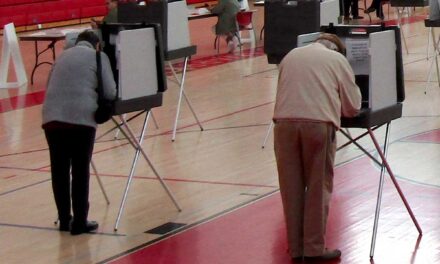By GAIL LOWE
WAKEFIELD — Today’s below zero weather prompted several homeowners in Wakefield to call plumbing companies due to frozen pipes.
Though his phone has not been ringing off the hook yet, by 8 a.m. John Cersosimo, owner of Central Plumbing & Heating on Albion Street, had received two calls, one from an Indian Road homeowner. He expected that more calls would come in during the day.
Cersosimo said that turning the thermostat up a notch and opening the cabinet door under the kitchen sink are ways to help prevent pipes from freezing and bursting. And some plumbers advise turning faucets on slightly to allow for a slow drip or trickle.
“Better to be safe than sorry,” said Cersosimo.
Some people whose pipes have frozen experience water coming through ceilings and raining down walls to the point where it looks like an indoor waterfall.
One West Side resident who requested anonymity told the Daily Item that when he took his shower this morning, the hot water could not be regulated and suspected that a cold water pipe in the basement had frozen.
The homeowner could not see any damage to pipes in the basement but he said he would be keeping an eye on things today.
Wind is often responsible for frozen pipes along with cold air. If wind crawls into a little space, chances are the pipes will freeze and burst and the damage is expensive to repair — typically in the hundreds of dollars. Burst pipes in a commercial building or a church building means an even greater expense.
Plumbers all agree that if the cold snap hangs around long enough, there isn’t much people can do to battle Mother Nature.
Installing insulation in older homes can help prevent broken pipes in frigid weather, as most problems involve water pipes that run along outside walls or in wall cavities that have no insulation.
Something homeowners should know: Recent remodeling projects can lead to frozen pipes in places where they never froze before because something like a finished basement ceiling will now prevent warm air from circulating around pipes. Cold water that runs at 40 degrees or higher should not be be a problem.
Heating experts say that the water temperature at the faucet is a good predictor of whether a homeowner is headed for problems.
If the cold water runs at 38 degrees or less, it means that frost is very deep and the underground lines are at risk of freezing and breaking.
Some homeowners use portable space heaters to cut down on home heating expenses and to avoid frozen pipes. But Fire Chief Michael Sullivan worries about what can result from misuse of these units.
“They’re fine to use as long as you never leave them unattended,” he said. “If a unit has a frayed cord, do not use it.”
Sullivan also said that all space heaters should be U.L. approved and that users should keep all flammable items at least three feet away.
From 2008 to 2010, 1,200 fires nationwide were caused by space heaters, according to the U.S. Consumer Product Safety Commission.
Sullivan also advised that homeowners never use a blow torch to thaw frozen pipes. In 2011, a Bedford homeowner lost his life using a torch.
At the time, State Fire Marshal Stephen D. Coan said the man’s death was the eighth fire death reported in 2011.
“I cannot stress enough the importance of making sure you have working smoke alarms on every level of your home to give you the artiest possible warning of danger and the most time to escape,” he said.
Richard Stinson, director of the Department of Public Works, said this morning that Wakefield has been fortunate this year in that there have been no water main breaks. He added that he hopes the trend continues.
“We’ve been fixing potholes caused by rain getting under pavement where holes have been filled,” he said. “And we’re keeping up with that work the best we can.”
The recent frigid weather feels a lot like last year’s Polar Vortex when plumbers and heating specialists were run ragged, but according to the weather forecast, today’s cold is not expected to linger. Tonight, temperatures will rise to 15 degrees and tomorrow is expected to be back up in the 30s.
To thaw frozen pipes
• Keep faucets open.
• Apply heat to the section of pipe using an electric heating pad wrapped around a pipe, electric hair dryer or wrap pipes with towels soaked in hot water.
• Never use a blow torch, kerosene or propane heater, charcoal stove or open flame device.
• Apply heat until full water pressure is restored.
• Check all faucets to determine if any other pipes are frozen.




